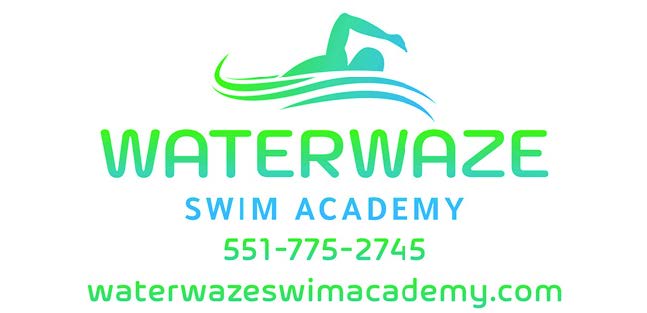
One of the benefits of living in Rockland County is how accessible pools are. Many of us have friends or neighbors who are willing to share. Maybe you’re not lucky enough to know the ‘right people’, but still get invited to pool parties or go to the bungalow colony for the weekend. Practically every camp offers swimming on a daily basis, and many have seasonal trips to waterparks. Swimming is a great activity that provides fun for the whole family. It offers numerous benefits, including sensory input, muscle tone and strengthening, and helps with focus. The problem is that drowning is the sixth leading cause of death worldwide for children aged 5-14 years. Statistically speaking, if you both own a gun and have a swimming pool in the backyard, the swimming pool is about 100 times more likely to kill a child than the gun is. Every year in the United States, there are over 4,000 fatal unintentional drownings. Having been in the industry for over 15 years, Waterwaze Swim Academy has made it our goal to train parents, therapists, and educators in what to look for when hiring a swim instructor. Over the next few weeks, this column will address the 10 most commonly asked questions about swimming lessons.
How many lessons will it take for my child to learn to swim?
The million-dollar question! It’s also the most common question we get from potential clients. Unfortunately, we haven’t figured out a one size fits all answer. There are so many variables that need to be taken into consideration. Does the child have sensory issues? How much body awareness do they have? Do they have any physical limitations or developmental delays? How much exposure do they have to a pool? Is the child afraid of water? Are there any behavioral issues? Has the child experienced any trauma around water? Without this information, how can I answer accurately and honestly? If a swim school tells you they can teach your child to swim in 15 lessons before even meeting them- they are not the professionals you want to trust your child’s swim instruction to. Every child is unique and has their own pace that they can successfully learn.
We need to define swimming. At Waterwaze Swim Academy, we define swimming as comfort and confidence in deep water. When a student can easily hang out in the deep for 10 full minutes without getting tired or panicked, we consider them a swimmer. Getting to that level of proficiency takes time, but we consider this the gold standard for safety.
We also want to take into account what the parents’ goals are. We have some clients who just need their child to be comfortable in shallow water where they can stand. Then there are others who want their child to learn the butterfly stroke and become certified lifeguards. And then there are parents who don’t care about strokes. They just want their kids to be safe because they have a pool in their backyard. As a general rule, I find that parents tend to underestimate the amount of time it will take to reach their objectives. On average, Waterwaze swimmers take about eight months to achieve safety in deep water. Keep in mind that swim instructors are like contractors- cheap is expensive. In the long run, you always get what you pay for. Next week we’ll talk about what to do if your child refuses to go to swimming lessons. Should you wait a year? Stay tuned…
Stay wet and stay safe!
Swimcerely yours,
Zahava
Zahava Shapiro is the owner of Waterwaze Swim Academy, which has locations in Monsey, Lakewood, and Israel. At Waterwaze, we teach swimming to all ages, from 4 months to 99 years old, using a gentle approach that prioritizes comfort over skill. Instructors are trained in Total Immersion, Infant Swim, and Swim Angelfish methods. Waterwaze swim instructors specialize in people who have been traumatized or affected by a negative experience with water. We believe every person is capable of learning how to swim. You can reach Waterwaze at 551-775-2745









